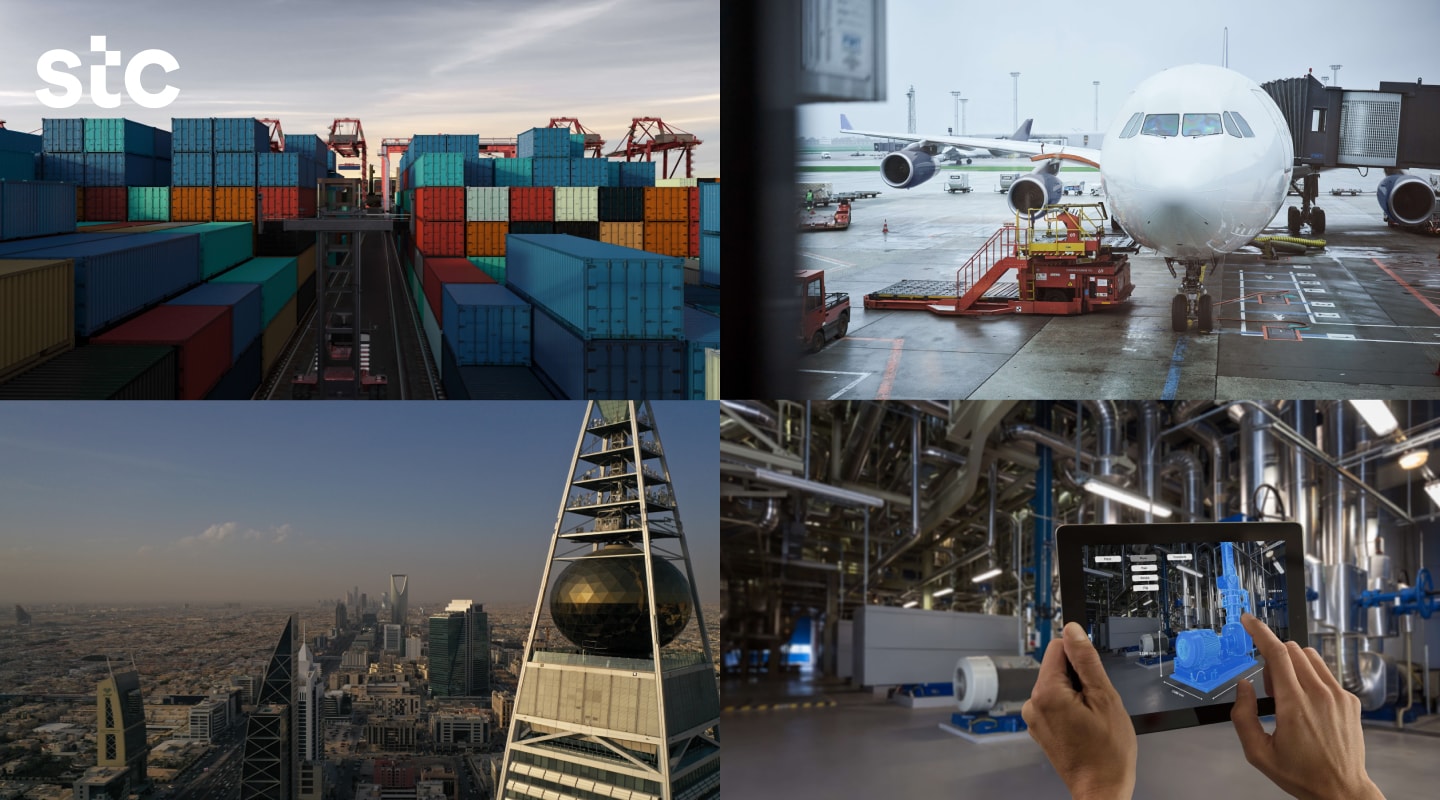Connected Manufacturing

Bader A. Allhieb
Infrastructure VP
Industry 4.0 is the next step in the evolution of manufacturing, based on the idea that machines should be able to communicate with each other and work together to create new products and services. Industry 4.0 begins the era of Smart Manufacturing which applies technology to digitally transform how industrial companies operate. Smart Manufacturing is driven by a need to boost efficiency, become more agile to respond to market unpredictability, improve quality while reducing costs, and to enable new business models. The Kingdom is keen to apply revolution in every sector of life and adoption to Industry 4.0 is no different; NEOM will offer the world's first fully integrated physical and digital port and supply chain network enabling manufacturers full transparency of the end-to-end value chain.
Smart Manufacturing is expected to leverage 09 ICT enabled production tools which include AI, Video recognition & Analytics, Remote control of machines & vehicles, Autonomous mobile robots & vehicles, Augmented Reality, Digital Twins, Virtual Reality, Collaborative Robots, and Exoskeletons. In the next 05 years 70% of manufacturers are expected to deploy at least 05 of these production tools while 75% of manufacturers foresee 5G to be vital for these tools.
Over the past century, the focus has been shifted from mass production to lean manufacturing leading to customer’s unique tailor made needs. This customization approach requires small batch productions with prediction modeling to adjust design and volumes in real time. Such dynamics also impose several challenges to manufacturers which include:
· Constant move to lower labor cost country.
· Supply chain resilience as faced in COVID-19.
· Transformation of fixed production setup to flexible one.
· Integration & compatibility of intelligent systems/sensors with old machines.
· Skills and talent gap.
· Cybersecurity for mostly internet based solutions.
· Correct predictions of customer’s need for efficient design/volume customization.
· Environmental compliance.
· Unhealthy work culture.
ICT Tools can perform dangerous tasks with same quality while providing output 24 hours a day, 7 days a week; 75% of decision makers agree that automation has increased the speed of production. Automation is best suited for tasks termed as three Ds: dull, dirty and dangerous. Digital Twins of products and processes can reduce and even mitigate the consequences of faulty decisions, planning and testing by running simulations. Exoskeletons provide support to body parts providing humans more power and precision in tasks that require too much physical efforts. VR & AR can demonstrate data and drawing in 3D about products, plans and its features within seconds which else required heavy animated presentations/sheets for proper demonstration. Similarly technologies like AI and Machine learning can quickly generate best design alternatives that humans can’t drive from customer requirements.
stc is keen to bring innovation and advanced technologies and solutions, to deliver total digital transformation to the Kingdom's most valuable industrial cities and manufactories. stc is determined to utilize the innovations of 5G to this market which will completely overhaul the experience of industry 4.0 as we know of today.
Saad Alajlan

Vice President and Head of stc Accounts
The Kingdom of Saudi Arabia recognizes its strong leadership role as the heart of the Arab and Islamic world, as a bold and powerful investor towards a more diverse and sustained economy, and as an international trading hub strategically located on the cusp of Africa, Asia, and Europe. Mindful of this crucial leadership role, the kingdom has charted an ambitious vision, Vision 2030, a key tenet of which is to grow and diversify the economy and increase participation of non-oil sector from 16% to 50% of GDP by 2030. McKinsey estimates that a productivity led transformation of the economy has the potential to double GDP by 2030 and create 6 million new jobs. One of the most prominent drivers of this growth in KSA will be the manufacturing sector which in 2019 was ~12.5% of GDP (at 373 BSAR) and boasts one of the fastest YoY growth worldwide at ~7.5%. The main drivers of this stellar growth include developed R&D facilities, generous governmental support, modern infrastructure, business friendly regulations and the global Industry 4.0 momentum.
The government of Saudi Arabia is one of the major tailwinds behind the growth in the manufacturing sector. This includes fast rollout of underlying infrastructure e.g., recent launch of 53BUSD National Infrastructure Fund, construction of new industrial cities such as Jubail and Yanbu and incentives such as the development of Saudi Industrial Development Fund. The government is also planning to invest ~70BUSD in building 6 new economic cities such as King Salman Energy Park (SPARK), Asfan Smart Industrial City 2, and King Abdullah Economic City (KAEC). KSA is creating special economic zones which will benefit from 453BUSD of domestic investment and a 19-fold increase in FDI to an expected 103 BUSD annually.
Specifically, 5G driven private cellular network solutions (as also provided by Ericsson), will support the digital connectivity needed to shape manufacturing into a more agile, secure, reliable, and intelligent process. Private networks introduce high-speed connectivity, low latency, and strong performance in high device density environments. This combination of high data volume and low latency will address major challenges faced by the manufacturing sector including:
· Falling productivity.
· Supply chain disruption.
· Shortage of competence.
· Old/outdates assets.
· Data Security.
· Ever changing customer expectation.
· Fixed assets.
86% of manufacturing executives believe smart manufacturing will drive competitiveness over the next five years. Smart manufacturing requires flexible automation. And that automation requires robust wireless connectivity, the catalyst for industry transformation. These connected factories will then be primed to boost efficiency, safety, reliability and ultimately profitability. stc has been leading the establishment of a strong 5G infrastructure and connectivity backbone; the future is being written.

